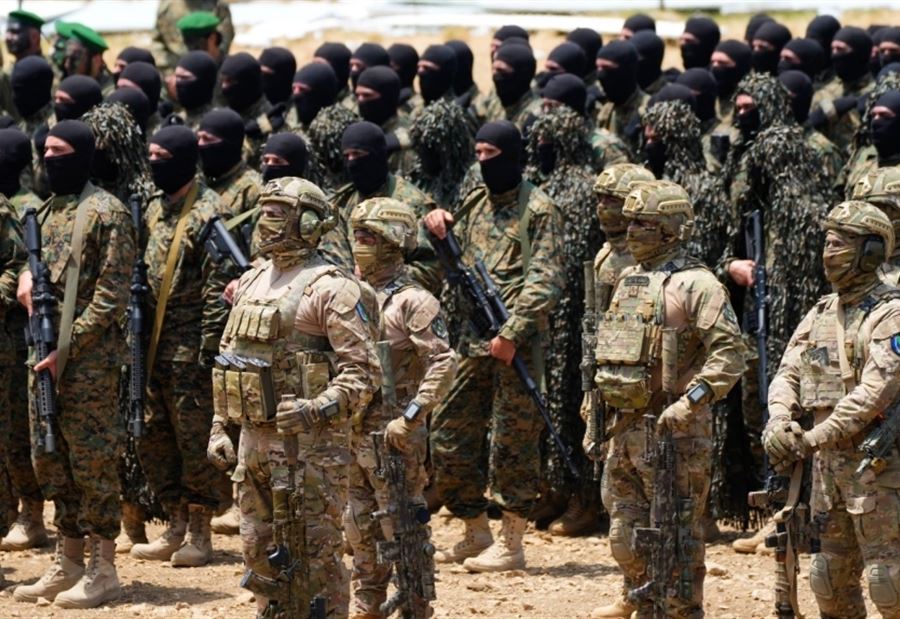تحولات جيوسياسية: هل تصبح ليبيا ممرًا لإيران في دعم حزب الله؟
أثارت معلومات تم تداولها حول إمكانية تحول ليبيا إلى ممر بديل لإيران لإرسال الأسلحة إلى حزب الله في لبنان، بعدما تم تدمير ممر “سوريا-العراق” البري، العديد من التساؤلات بشأن صحة هذه المعلومات. وفي تقرير تحليلي لمركز “ألما” الإسرائيلي، أُشير إلى احتمال أن تلعب ليبيا دورًا محوريًا في مسار جديد لإيران في دعم حزب الله، بعدما شهد ممر العراق وسوريا انهيارًا في المرحلة الأخيرة.
وبحسب التقرير، استغلت إيران الوضع غير المستقر في دول مثل السودان وليبيا لتعزيز قدراتها اللوجستية في دعم حزب الله. وقد تميز الوضع الليبي، خصوصًا في ظل الانقسام السياسي، بعدم الاستقرار الأمني، ما جعل من ليبيا نقطة مثالية لتنفيذ عمليات تهريب الأسلحة والموارد المالية لصالح إيران.
أما بالنسبة لدور الجنرال الليبي خليفة حفتر، فقد أشار التقرير إلى أنه قد يكون له دور في هذا الموضوع، خصوصًا أن قواته تسيطر على مناطق شرقية وجنوبية من ليبيا، ما يجعلها مواقع استراتيجية محتملة لهذا المسار الجديد.
من جهة أخرى، فقد شكك مراقبون ليبيون في صحة المعلومات الواردة في التقرير، مؤكدين أن العلاقات بين ليبيا وإيران ليست على هذا النحو، وأن ليبيا قد تكون بعيدة عن هذا النوع من التعاون الذي يتطلب التفاعل مع سياسات إيران في المنطقة.
المحللون السياسيون في ليبيا يشيرون إلى أن هذه الأنباء قد تكون جزءًا من حملة تشويه تهدف إلى تحفيز تدخلاً أمريكيًا في المنطقة، خاصة بعد النجاحات الأخيرة التي حققها الجيش السوداني ضد المرتزقة في السودان.
أما الباحث التونسي في العلاقات الدولية، بشير الجويني، فقد أكد أن العلاقات بين إيران وليبيا قد شهدت تحسنًا نسبيًا في السنوات الأخيرة، لكن العلاقات الاقتصادية والسياسية لا تزال محدودة مقارنةً بالدول الأخرى مثل تركيا وروسيا.
يُذكر أن ليبيا لطالما كانت في حالة انقسام سياسي، وفي ظل هذه الظروف، يظل السؤال: هل ستصبح ليبيا فعلاً ممرًا لتوريد الأسلحة الإيرانية إلى حزب الله في لبنان؟ أم أن التحليلات هي مجرد افتراضات غير دقيقة؟
Geopolitical Shifts: Could Libya Become a Corridor for Iranian Support to Hezbollah?
Recent reports have raised the possibility of Libya becoming an alternative corridor for Iran to send weapons to Hezbollah in Lebanon, following the destruction of the “Syria-Iraq” land corridor. These reports have sparked a series of questions regarding the accuracy and validity of the information.
According to an analytical report from the “Alma” Israeli Center, Libya could play a crucial role in a new route for Iranian support to Hezbollah after the collapse of the Iraq-Syria land route. The report suggests that Iran is exploiting unstable countries like Sudan and Libya to strengthen its logistical capabilities in support of Hezbollah.
The report highlights that Libya’s political division and unstable security situation make it an ideal environment for Iran to carry out arms and financial resource smuggling operations. Additionally, it speculates that General Khalifa Haftar, whose forces control large parts of eastern and southern Libya, could play a role in this potential route.
However, Libyan observers have expressed doubts about the accuracy of the report, asserting that there is no significant relationship between Libya and Iran that would allow such actions. They emphasize that Libya is likely far removed from such cooperation that would involve Iran's policies in the region.
Libyan political analysts have pointed out that these claims may be part of a smear campaign aimed at provoking U.S. intervention, especially after Sudan’s army achieved significant victories against “Hamidti's” mercenaries.
Tunisian researcher in international relations, Bashir Jouini, noted that the relationship between Iran and Libya has seen gradual improvement in recent years, but it remains limited compared to other countries like Turkey and Russia. He added that while there is growing economic cooperation, it has not yet reached the levels required for full-scale military support.
The question remains: will Libya truly become a corridor for Iranian arms shipments to Hezbollah in Lebanon, or is this simply an unfounded hypothesis?
Translated by international scopes team
المصدر: عربي 21
 International Scopes – سكوبات عالمية إجعل موقعنا خيارك ومصدرك الأنسب للأخبار المحلية والعربية والعالمية على أنواعها بالإضافة الى نشر مجموعة لا بأس بها من الوظائف الشاغرة في لبنان والشرق الأوسط والعالم
International Scopes – سكوبات عالمية إجعل موقعنا خيارك ومصدرك الأنسب للأخبار المحلية والعربية والعالمية على أنواعها بالإضافة الى نشر مجموعة لا بأس بها من الوظائف الشاغرة في لبنان والشرق الأوسط والعالم

